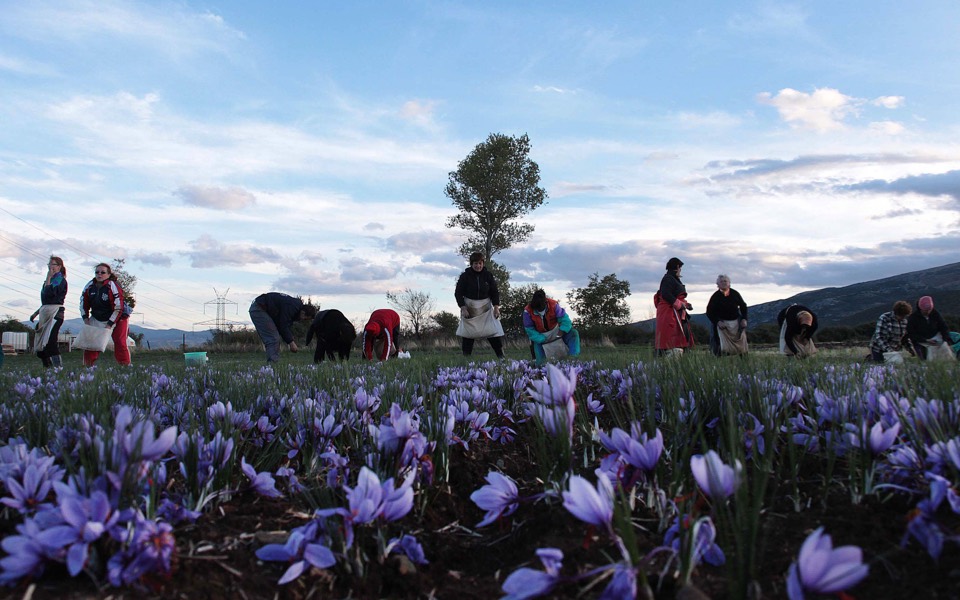The CAP, a historic reform

The EU’s Common Agricultural Policy (CAP), launched in 1962, is one of the oldest and most important EU policies. The current reform of the CAP (2021-27) is a critical milestone in policy making for many reasons – most notably for addressing key issues including the need to improve the competitiveness of our primary sector, protect the environment and tackle the effects of climate change, as well as promoting the social cohesion of our rural areas.
The formulation of the National Strategy Plan for Greece within the framework of the new CAP represents a historic milestone. The highly significant, democratic and participatory process requires the willingness to change, commitment to renewal and a great degree of adaptability from all: governments, politicians, farmers, consumers, citizens. This, of course, presupposes the appropriate information and knowledge.
Toward implementing this process, we exhausted all possibilities for broad outreach, despite the limitations created by the pandemic, to communicate and explain the reforms of the new CAP. Activities included discussions, exchanges of views and propositions which contributed to a comprehensive and coherent proposal presented to our national delegation. Furthermore, the widespread engagement launched a new logic in the sphere of public debate which respects institutions, citizens and producers.
With delivery to the competent parliamentary committee last week, the long cycle of dialogue on the new CAP had essentially ended. The extent of the Ministry of Rural Development and Food’s dissemination/consultation activities was far-reaching and productive. Coordinated by the Ministry of Rural Development and Food’s competent secretary, Dr Konstantinos Baginetas, 24 regional conferences were organized, covering hundreds of hours of discussion by representatives of producers, partners and entrepreneurs in the agri-food sector, as well as participation from local governments.
Approximately 1,948 participants were invited to regional conferences, with 1,400 attending in person. All conferences provided for the possibility of digital participation. Representatives of the parliamentary parties were also invited to all meetings. Several of the proposals were incorporated into the final proposal of the Ministry of Regional Development, which is expected to be submitted to the EU by the end of the year.
The benefits of the new CAP are multiple and multidimensional for all farmers and Greek rural communities. This translates into strengthening small and medium-sized producers, green and digital investments, more and better jobs, attracting young people with new career opportunities and improvements in producer income.
The three main features of the new CAP Strategy Plan for Greece are the elimination of inequalities, strengthening a new generation of farmers and support for development.
As regards increased support for development, the new CAP focuses on enhanced programs and investment support for the primary sector by transferring 10% of Pillar I to Pillar II, amounting to around €1 billion, increasing the percentage of Pillar II from 23% to 30% of the State File Priority is also given to the modernization and digital transformation of the primary sector.
Concerning support for young farmers, the new CAP aims at strengthening the program for the next generation. The initiative has already been proven a success by the doubling of the New Farmers Program for the next period as well as by the increase per beneficiary.
The last program under the SYRIZA government provided for €17,000, whereas the new program which started this December provides for €40,000. The success of the program is further reinforced by our intention to announce new Young Farmers programs for 2023 and 2025.
Lastly, we are providing generational justice with the abolition of the historical rights that were secured by the old CAP until 2003, which wronged the new generations of farmers which followed.
The elimination of inequalities in the new CAP centers on policies for streamlining the system of payment for community aid and support for small and medium-sized holdings through redistributive aid from 2023. With our proposal, the long-term unequal distribution of aid payments is overturned, with 30% of the beneficiaries of basic aid having received 80% of the resources so far.
At the same time, the Ministry of Rural Development and Food, demonstrating crucial awareness of the social and economic conditions which have impacted agricultural incomes, is maintaining the existing aid program for products and producers toward maintaining social cohesion, and is furthering its support with a new program for livestock farming.
Aimed at this specific goal and strengthened by resources amounting to approximately €20 billion, we are confident that by following the directive “compass” of the new CAP – which is equivalent to an additional ESPA fund exclusively for farmers – we will be able to substantially transform our production model and open new avenues for development, progress and prosperity. I want to believe that our effort will be collective, cross-party and based on joint efforts and coordination to achieve our common goals.
Spilios Livanos is Greece’s minister of rural development and food.




